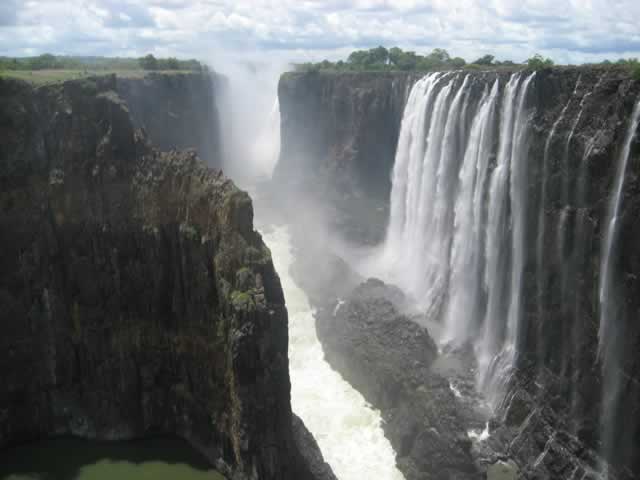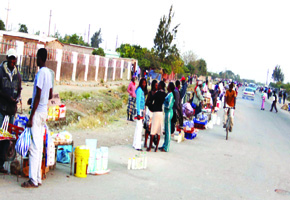Zim Asset wake up call for slumberers

Perspective Stephen Mpofu
A syndrome of dependency on foreign sources of supply for a country’s survival may yield handsome dividends in the short term.
In the long term, however, a near total reliance is wont to have dysfunctional, boomerang effects, what with modern international relations that tend to resemble the capricious character of a chameleon.
Take for in instance a person who relies for his existence on the benevolence of an intemperate person. If approached when in fits of tantrums, the benefactor might slam the door in the beggar’s face as it were.
Posit a similar situation developing in the future for a nation’s tourism industry and you are not likely to be way off the mark. For any tourism riding on the back of foreign patronage will be transient with serious consequences on jobs and on the liquidity of tourist companies.
Which is why concerted effort in promoting domestic tourism should get off the lips as is mostly the case at present, and on to the ground for a meaningful paradigm shift to take place.
It is no exaggeration to suggest that today Zimbabweans are more visible in the tourism industry as paper clips – front desk attendants, drivers, errand boys, escorts etcetera, while the bwanas who do not in blood and soul belong in Zimbabwe sit back in their anonymity to skim the cream in the industry.
Zimbabwe’s detractors in the outside world spend sleepless nights in plots to pariah the country because of its revolution which has seen land, previously in the hands of white settlers, returned to its original owners, with indigenisation and black economic empowerment now signature tunes of the continuing revolutionary path toward full political and economic independence.
If one day our nemesis decide to impose travel bans to stop their nationals flocking to Zimbabwe as they do so now as tourists, our tourism industry will have been dealt a mortal blow, in the absence of a vibrant home holiday-making programme in place. Should that happen, the country could see the flight of non-indigenous tour operators, like migratory birds in pursuit of hospitable weather changes, leaving behind an industry in quandary.
Yet Zimbabwean executives and others earn sufficient incomes for them to patronise tourist spots to be found in various parts of the country if only lucrative, tourist promotional schemes were put in place to lure them and their families away for weekend and holiday breakaways at places such as Victoria Falls, the Eastern Highlands, Great Zimbabwe, the Matopos, not to mention national game parks strewn around Zimbabwe for all to visit and savour the beauty of nature and wildlife.
Not only will such visits strengthen Zimbabwe’s tourism industry in the event of an exodus of non-Zimbabwean players in the tourism industry, in rebellion against any laws or practices that they deem to be hostile to their interest; workers and other professionals will find such breakaways creative as they will return home to their workplaces refreshed and re-invigorated for better performance.
What it really takes to get locals away from squandering their earnings in pubs at weekends and during holidays — and in some cases battering their wives in domestic violence when drunk — is for buses being laid on at reasonable costs to take holiday-makers to accommodation being levied as a way of attracting locals to places of interest.
Organised tours for school children to places of interest are bound to nurture a strong cadre of future patrons of Zimbabwe’s domestic tourism.
The measures suggested by this pen have the potential to drastically alter the complexion of the patrons of tourism from foreigners to locals, thereby providing an added fillip to domestic tourism promotion.
Of course, these are bold measures that must of necessity call for a bold change in the overkill instinct whereby tour operators and hotels exact the same fees and rates for both local and foreign tourists who come to Zimbabwe loaded with spending money for their adventures and enjoyment.
Ironically, for many Zimbabweans in high positions and high income brackets some of the country’s tourist destinations remain out of reach because they are mostly promoted for tourists abroad.
If this is not a tragic irony and a slap in the face and on the hearts of those charged with promoting the country’s tourism, this pen wonders what description fits the players in the tourism industry.
It is this pen’s strong hope that Zimbabwe’s blueprint, Zim Asset, will serve as a wake up call for all who sleep on the job instead of taking resolute steps for the social and economic transformation of our beautiful motherland.







Comments